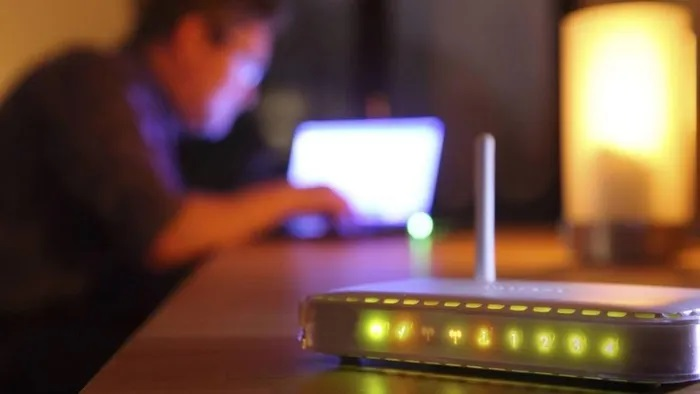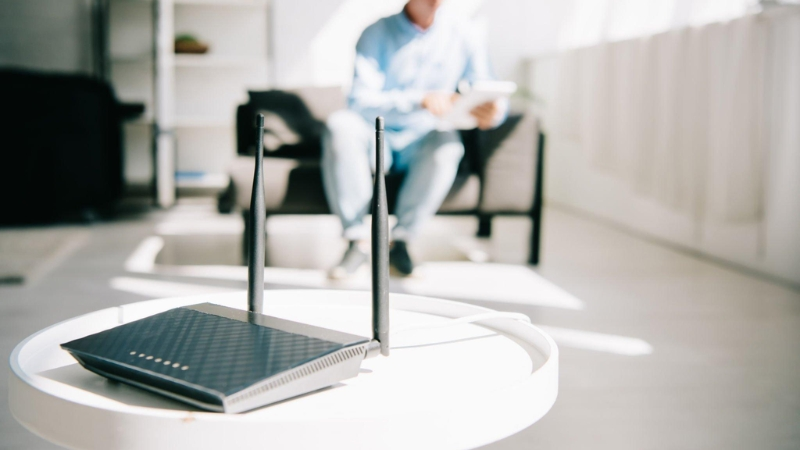What is Wi-Fi?
Wi-Fi stands for Wireless Fidelity, which is a communication network technology that allows computers and phones to remotely connected.These are energy waves in the range of 2 gigahertz to 5 gigahertz on the electromagnetic spectrum - similar to the waves used in the microwave.
Like all forms of electromagnetic energy, the signals created by the Wi-Fi network are a form of radiation.
If Wi-Fi is a radiation, will it cause cancer?
Although Wi-Fi radiation seems like a microwave radiation and many people are concerned about the dangers of this radiation, but now, many health experts have confirmed that Wi-Fi waves do notmust be a danger to human health.Wi-Fi belongs to the "non-ionized" radiation type.This type of radiation is not enough to damage the body's cells or DNA.

One of the other worries of many people is whether Wi-Fi radiation can increase the rate of cancer.When the body is exposed to strong radiation, human DNA links may be broken, leading to cell mutations and cancer formation.However, as mentioned above, because Wi-Fi belongs to ionized radiation, it is not likely to affect DNA.Therefore, there is no basis to prove that Wi-Fi may increase the risk of cancer.Currently, there is no scientific evidence that exposure to Wi-Fi, telephone signals, or other non-ionized radiation forms associated with increased cancer risk.
Maria Feychting, professor of epidemiology at the Karolinska Institute in Stockholm, said: "Currently there is no scientific evidence showing contact with electromagnetic schools while using mobile phones with negative effects on.Human health. "
In 2012, a report was published widely by the British health protection agency showing no evidence that radio frequency signals are likely to cause cancer.
Similarly, other studies conducted in 2016 by the Institute of Technology and Technology concluded that Wi-Fi did not cause negative health effects for humans.
This year, the World Health Organization has reviewed more than 5,000 studies, including 63 observed studies in humans, which also resulted in no connection between phone use and cancer.
The main researcher of this project, Professor Ken Karipidis from Australian Nuclear Protection and Safety Agency, said: "We have concluded that there is no evidence that shows the relationship between phones di di phonesDynamic and brain cancer or cancers related to other heads and necks. "
A number of studies have claimed to find an increased risk of cancer involved in contact with ionized radiation - especially from holding the phone in the ear.For example, a research team called Bio-Initiative concluded that radio frequency radiation is associated with increasing cancer rates, even at a very low level.Another study by 2020 from the University of California at Berkeley also stated that using a mobile phone just 17 minutes a day for 10 years may increase the risk of developing cancer tumors by up to 60%.
However, these findings have caused many controversy large and small;Many researchers have shown serious shortcomings in these announcements.
For example, scientists have discovered that the Bio-Initiative research includes "many chapters written by individual authors and there is no reference or discussion between researchers."
The Cancer Research Center in the UK also rejected the results of the research team from the University of California at Berkeley with the statement: "The use of mobile phones does not increase the risk of cancer."
Is there any evidence that Wi-Fi is safe?
On the other hand, we have many reasons to believe that Wi-Fi does not cause cancer.
Cancer Research Center in the UK (CRUK) shows that the number of mobile phones in the United Kingdom has increased by 500% from 1990 to 2016., we had to witness a similar increase in brain cancers and other types of cancer related to the head.However, from 1990 to 2016, the rate of brain cancer among the British people still did not increase;Although there is still an increase, this shows the advancement in England's science and technology and medicine only.
Can Wi-Fi affect people in other ways?
Some people think that even if they are not able to cause cancer, Wi-Fi can adversely affect people in a different way.Scientists have discovered that radio waves can affect our bodies in different ways, from heating the tissues, stimulating the nervous system to cause cell stress.

Wi-Fi waves have a very high frequency, enough to heat the tissues in the body, may even cause burns if exposed to intensity.And the waves with lower frequencies are capable of affecting the nervous system, causing some symptoms of sleep disorders, mood change, etc. for humans.
A study at the University of Exeter also shows that regular use of mobile phones can affect the quality of men's sperm.However, scientists are continuing to study to make an accurate conclusion.
Facing these concerns, many countries have issued strict regulations to limit exposure to radio waves.For example, Canada has set a much lower safety limit than the level of harm.
Even so, there is still a lot of controversy about the harmful effects of Wi-Fi waves.Many people think that we do not have enough evidence to conclude.However, scientists around the world have been conducting thousands of research on this issue.That means, we have a much better Wi-Fi wave than other chemicals we still contact every day.
Source: Dailymail